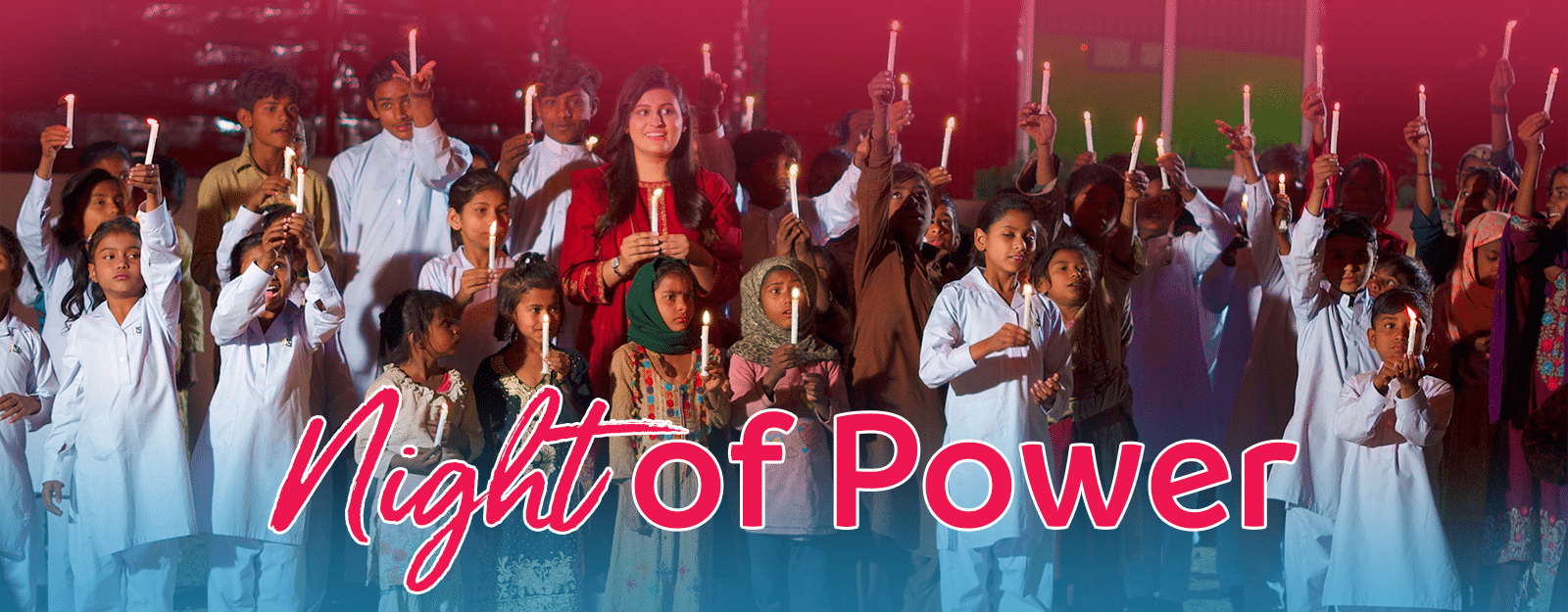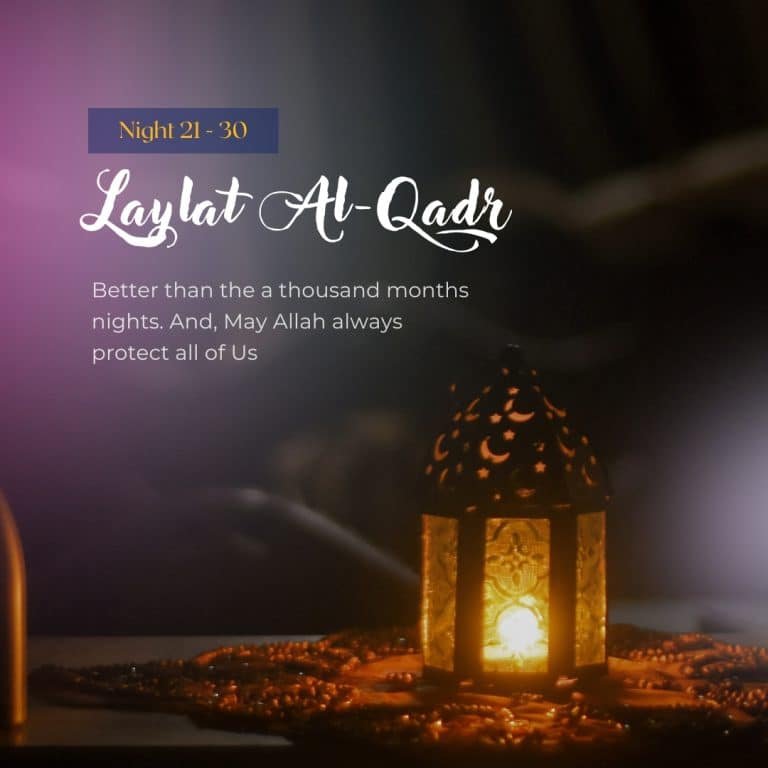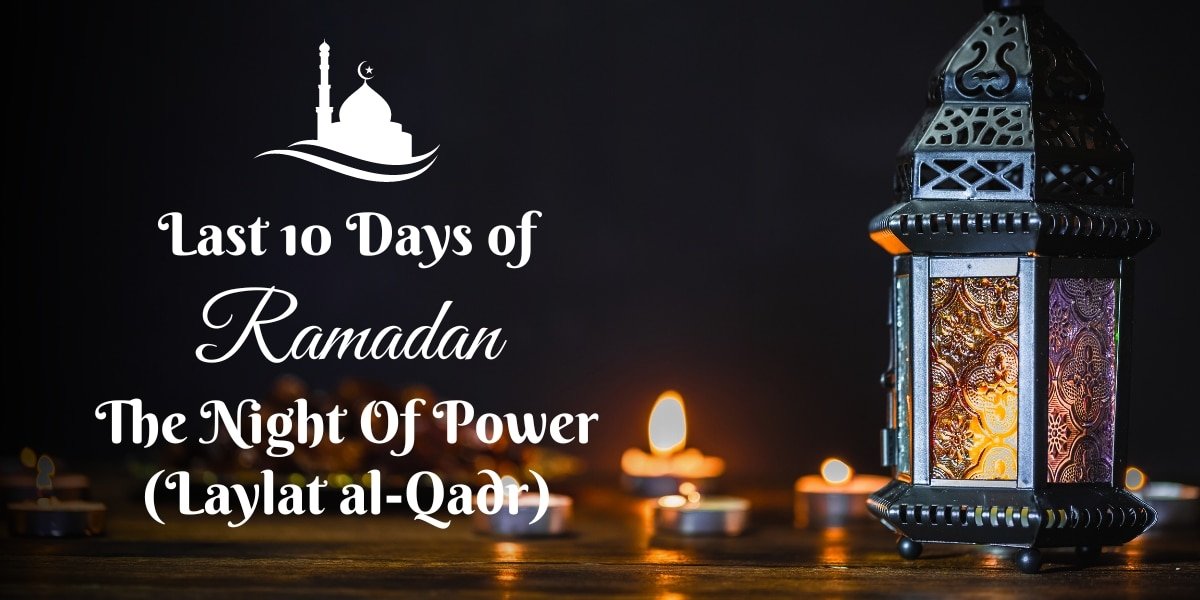
During the holy month of Ramadan, Muslims are encouraged to engage in profound reflection, sincere prayer, and abstinence from sin. The main focus of Ramadan not only centers around fasting but also on strengthening one’s connection with Allah (SWT) through acts of worship, profound declarations of His greatness, and praying to Him.
Ramadan, itself, is a uniquely special time in Islam, promoting spiritual growth and self-discipline. However, the last ten nights hold unparalleled significance as they encompass the Night of Power, known as Laylat-al-Qadr. Allah (SWT) has bestowed these nights with extraordinary blessings and virtues.
Laylat-al-Qadr (night of power) is the night when the Quran was revealed for the first time to our beloved Prophet Mohammad (PBUH) and to all mankind.
Many people believe that this night of blessings occurs on the 27th of Ramadan every year. But according to many Islamic scholars and the teachings of our beloved Prophet Muhammad (PBUH), Laylat-al-Qadr is believed to occur on any of the last 10 nights of Ramadan. The exact night is not specified, but there is a strong emphasis on seeking it during the odd-numbered nights of the last ten days, particularly the 21st, 23rd, 25th, 27th, and 29th nights.
Prophet Muhammad (peace be upon him) advised us to:
“Look for it on the odd nights of the last ten nights of the month of Ramadan.” Bukhari

Only Allah (SWT) has the true knowledge of Laylat-al-Qadr, but here are some signs that help us identify this night. Out of these signs, two are the most authentic:
The sun rises early in the morning, having no rays. Ubayy (may Allah be pleased with him) said:
“The Prophet (PBUH) said, “On the morning following Laylatul-Qadr, the sun rises without any rays, as if it were a brass dish, until it rises up.” (Muslim)
The night will be pleasant and calm, with moderate weather. Ibn ‘Abbaas (may Allah be pleased with him) said:
“Allah’s Messenger (PBUH) said: “Laylatul-Qadr is calm and pleasant, neither hot nor cold; the sun rises on its morning, feeble and red.” (Ibn Khuzaimah)
If we consider Laylat-al-Qadr to fall on the 27th night of Ramadan, the date this year would be April 7th. However, it’s important to note that Laylat-al-Qadr may occur on any of the last ten odd nights of Ramadan. If the exact night is other than the 27th of Ramadan, the date for Laylat-al-Qadr will be adjusted accordingly.

In the Quran, there is a special surat with the name of this powerful night called Surah Qadar. In Surah Qadar, Allah (SWT) says:
“We have sent it (this Qur’an) down in the Night of Qadr.
And what may let you know what the Night of Qadr is?
The Night of Qadr is much better than one thousand months.
The angels and the Spirit (Jibril) descend into it with the leave of your Lord, along with every command.
Peace it is till the debut of dawn.”
On the Night of Power, you can make as many duas as you want, perform Nawafils, do Dhikar, and read the Quran as much as you can. All of these deeds hold equal importance. There is a special dua for Laylat-al-Qadr, a dua that Prophet Muhammad (PBUH) taught Aisha (R.A.). She is reported to have asked the Prophet (PBUH), “O Messenger of Allah, if I know which night is Laylat al-Qadr, what should I say?” He said:
O Allah, You are All-Forgiving, and You love forgiveness, so forgive me.
Doing acts such as Nafl (voluntary) prayers, Sadaqah, and Du’a can help you earn thousands of rewards, but when they are performed on The Night of Power with sincere intention and faith in Allah’s (SWT) acceptance, the rewards increase tremendously. Performing good deeds during Ramadan is multiplied by 70 times, and their reward is equivalent to having performed that same deed every day for 83 years.
In a famous hadith, it is narrated:
“Whoever prays on Laylatul Qadr out of faith and sincerity shall have all their past sins forgiven.” (Bukhari and Muslims)
We believe that only education and skill development can empower youth, shaping their futures and substantiating the deprived community.
BANK DETAILS
Bank Name: Bank Islami
Account Title: Saya E Khuda E Zuljalal
Account Number: 2053-5712157-0001
IBAN NUMBER: PK60BKIP0205357121570001
Bank Name: Cashplus Bank
Account Title: Saya E Khuda E Zuljlal
Account Number: 07845728
Sort Code: 08-71-99

© SKZ Foundation TM 2017. Privacy Statement , Terms & Conditions Registered Charity No: 1200520. Head Office: 4 hollis lock, Chelmsford CM2 6RR UK. Disclaimer: SKZ Foundation is not affiliated with any external websites. SKZ Foundation is not responsible for the content of external internet sites and any links from external web sites to this site do not constitute an endorsement of that site by SKZ Foundation.
Copyright @ 2024 Single Solution. All Rights Reserved.